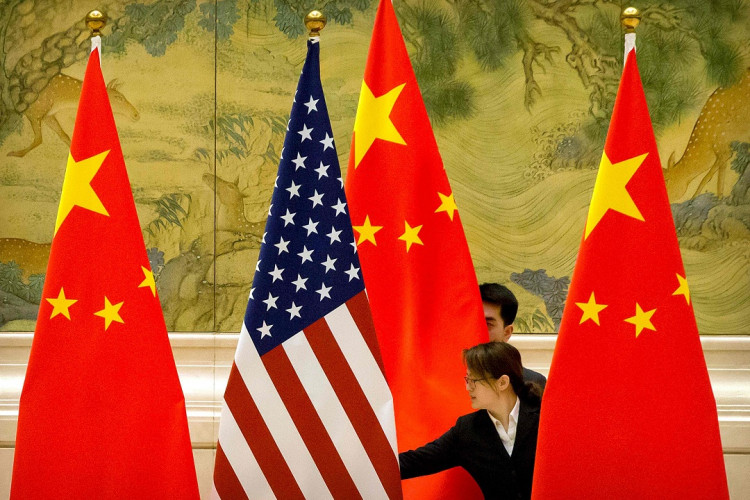Tensions between Washington and Beijing escalated this week after China's Commerce Ministry vowed to "fight to the end" in response to U.S. accusations that it is attempting to damage the world economy. The renewed trade clash follows a series of retaliatory tariffs and export restrictions that have reignited fears of a full-scale economic confrontation between the world's two largest economies.
On Tuesday, China denounced new U.S. port fees on Chinese cargo vessels as "threatening to intimidate," saying such measures were "not the right way to get along with China." Commerce ministry officials accused the U.S. of violating global trade principles and confirmed that Beijing had begun matching Washington's tariffs with equivalent fees on American ships. The move came the same day both countries enacted reciprocal maritime charges, deepening a tit-for-tat standoff that has spread across sectors from shipping to minerals.
U.S. Treasury Secretary Scott Bessent said China was trying "to pull everybody else down with them," accusing Beijing of intentionally undermining global stability. "If they want to slow down the global economy, they will be hurt the most," he told the Financial Times. China's rebuke came hours later, with a ministry spokesperson declaring that "China will fight to the end" in upcoming trade negotiations.
The renewed rhetoric coincides with Beijing's sweeping new export restrictions on rare earth minerals-materials critical for modern electronics, electric vehicles, and U.S. defense manufacturing. Last week, China barred the export of rare earth materials for use by foreign militaries, a move analysts say gives President Xi Jinping a potent bargaining chip in trade talks. "What this essentially means is that it will deny licenses to foreign militaries and companies that are producing military use end goods," said Gracelin Baskaran, a critical minerals expert at the Center for Strategic and International Studies. "It undermines the development of the defense industrial base at a time when there is rising global tension."
Rare earths are indispensable to U.S. weapons systems including F-35 fighter jets, Virginia-class submarines, Tomahawk missiles, and radar arrays, according to the U.S. Department of Defense. China dominates 60% of global mining and over 90% of refining capacity, making it the indispensable player in a supply chain Washington is struggling to replicate. "It's scandalous that we don't have a rare earths strategic reserve, that we let China monopolize 90% of the refining of rare earth materials," University of Pennsylvania finance professor Jeremy Siegel told CNBC.
Industry analysts said the Chinese export measures could have "massively disruptive" consequences. Wolfe Research analyst Tobin Marcus wrote that the restrictions-some of which require licenses for products containing as little as 0.1% Chinese rare earth content-"would be massively disruptive, not just to the U.S. but globally." The rules threaten to upend production across the semiconductor, defense, and electric vehicle industries, affecting companies such as Apple, Nvidia, Tesla, and Lockheed Martin.
The Trump administration responded by announcing 100% tariffs on Chinese exports, effective Nov. 1, a sharp escalation from the current 44% average rate on Chinese imports. The tariffs come on top of previously imposed port fees and are intended to counter what Washington calls unfair trade and security practices. Markets have reacted sharply: U.S. stocks lost about $2 trillion in value on Friday following Trump's threat, before partially rebounding after he said, "it will all be fine" with China.
Despite the hostilities, both sides have maintained limited contact. China's Commerce Ministry confirmed "working level" talks took place Monday, though no progress was announced. Trump and Xi Jinping are still expected to meet on the sidelines of the Asia-Pacific Economic Cooperation summit in Seoul later this month, Bessent said, though Beijing has not confirmed the meeting. Goldman Sachs analysts told clients that "both sides may pull back on the most aggressive policies" and could extend the current tariff truce.






